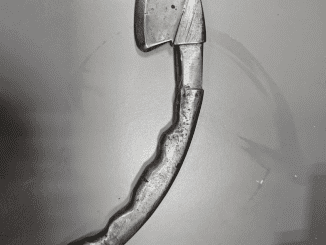When it comes to managing your health, knowing how certain foods interact with your medications is essential. Some food and medication combinations can reduce the effectiveness of your treatment, while others can lead to dangerous side effects. Being informed about these interactions empowers you to make safer choices, helping you maintain your health and make the most of your medications. In this article, we’ll explore ten common food and medication interactions you should be aware of to avoid any potential health risks.
1. Grapefruit and Statins
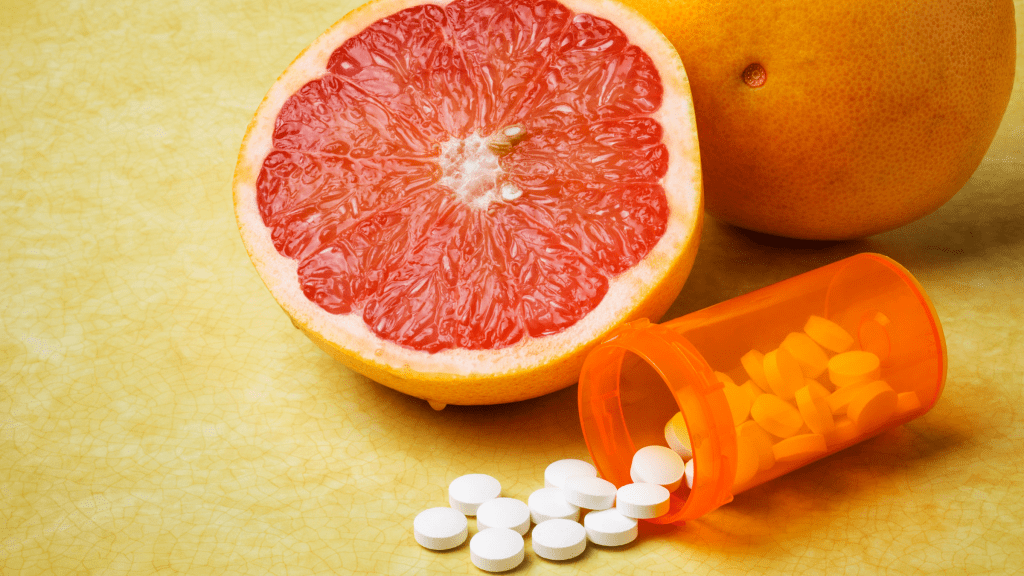
Statins are widely prescribed to help lower cholesterol levels and reduce the risk of heart disease. However, if you’re taking statins, you’ll want to avoid grapefruit and grapefruit juice.
- Why It’s Dangerous: Grapefruit contains compounds that interfere with enzymes in your liver that break down statins. This can cause an excessive amount of the medication to enter your bloodstream, increasing the risk of serious side effects like muscle damage, liver issues, and kidney failure.
- What to Do Instead: Opt for other fruits like oranges or apples, which don’t have this interaction. Always check with your doctor or pharmacist if you’re unsure about a particular food’s interaction with statins.
2. Leafy Greens and Blood Thinners
Leafy greens, such as spinach, kale, and broccoli, are rich in vitamin K, a nutrient that plays a key role in blood clotting. If you’re taking blood thinners like warfarin, consuming too much vitamin K can counteract the medication’s effects.
- Why It’s Dangerous: Blood thinners work by reducing your body’s ability to form clots, while vitamin K promotes clotting. Consuming a lot of vitamin K can make blood thinners less effective, potentially increasing your risk of blood clots.
- What to Do Instead: You don’t have to avoid leafy greens entirely, but try to keep your vitamin K intake consistent. Talk to your healthcare provider about a balanced diet that supports your medication regimen.
3. Dairy Products and Antibiotics
Dairy products like milk, cheese, and yogurt contain calcium, which can interfere with the absorption of certain antibiotics, including tetracycline and ciprofloxacin.
- Why It’s Dangerous: Calcium can bind to these antibiotics in your stomach and prevent your body from absorbing them effectively. This reduces the drug’s effectiveness, making it harder to treat infections.
- What to Do Instead: Avoid consuming dairy products within two hours before or after taking these antibiotics. Opt for non-dairy snacks, such as fruits or vegetables, if you need something to eat with your medication.
4. Bananas and ACE Inhibitors
ACE inhibitors, prescribed to manage high blood pressure, work by helping your blood vessels relax and dilate. These medications can increase potassium levels in your body, which means you’ll want to monitor your intake of potassium-rich foods, like bananas.
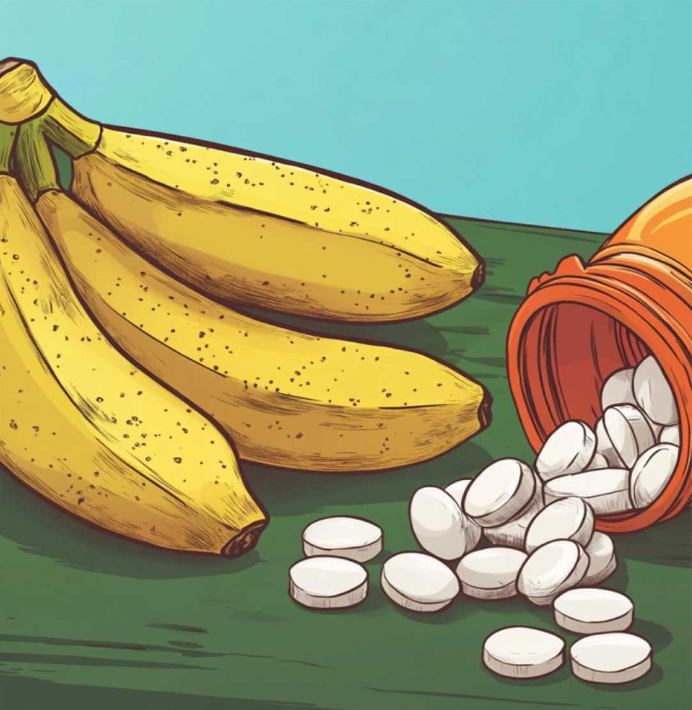
- Why It’s Dangerous: Eating a lot of potassium-rich foods while taking ACE inhibitors can lead to hyperkalemia, a condition where potassium levels become too high. This can cause heart palpitations, muscle weakness, and even heart failure in severe cases.
- What to Do Instead: Limit your intake of bananas, oranges, and other potassium-rich foods. Your doctor may recommend other fruits or vegetables that are lower in potassium.
5. Alcohol and Pain Relievers
It’s generally advised to avoid alcohol when taking any kind of medication, but it’s especially important with pain relievers like acetaminophen and NSAIDs (e.g., ibuprofen or aspirin).
- Why It’s Dangerous: Alcohol can intensify the side effects of these medications, leading to liver damage (especially with acetaminophen) and an increased risk of stomach bleeding (with NSAIDs).
- What to Do Instead: If you need to take pain medication, skip the alcohol. If you plan to drink, consult with your doctor about safe ways to manage your pain.
6. Chocolate and MAO Inhibitors
MAO inhibitors are a type of antidepressant that can have dangerous interactions with foods containing tyramine, such as chocolate, aged cheeses, and cured meats.
- Why It’s Dangerous: Tyramine can cause a rapid increase in blood pressure when combined with MAO inhibitors, leading to a hypertensive crisis, which can be life-threatening.
- What to Do Instead: Limit or avoid foods high in tyramine while taking MAO inhibitors. Check with your healthcare provider for a full list of foods to avoid to ensure safe treatment.
7. Coffee and Certain Antidepressants
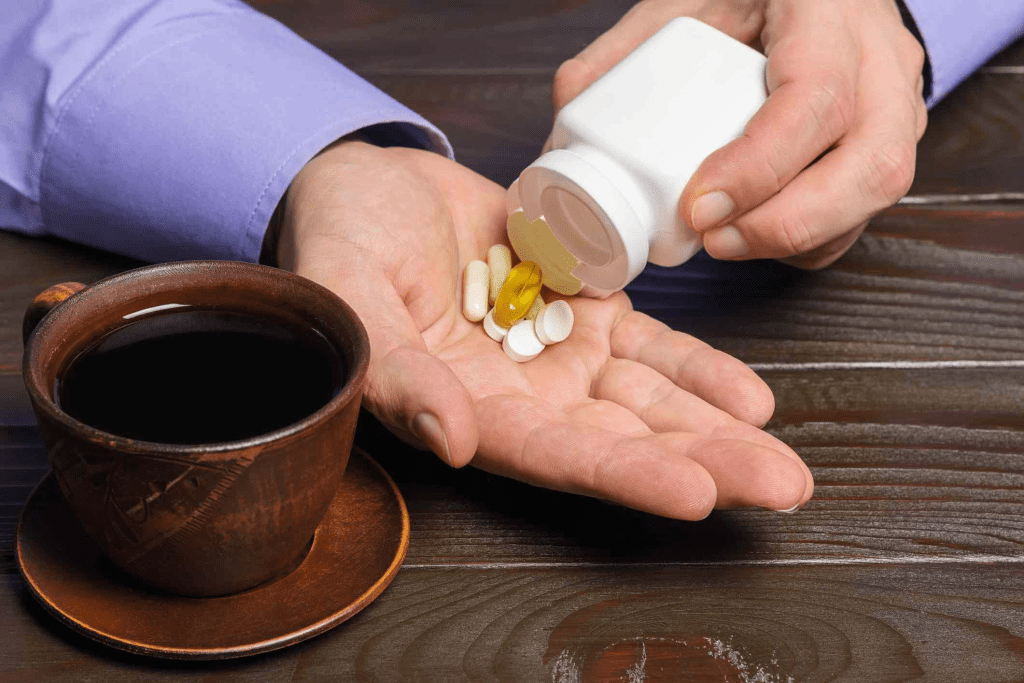
If you’re a coffee lover, take note that caffeine can interact with certain antidepressants, particularly those like lithium.
- Why It’s Dangerous: Caffeine can reduce the efficacy of some antidepressants and increase the side effects of others, such as anxiety, jitteriness, and elevated heart rate. It can also affect how quickly your body metabolizes these drugs.
- What to Do Instead: Try to reduce your caffeine intake or switch to decaffeinated options. Check with your doctor about safe caffeine levels if you’re taking antidepressants.
8. Licorice and Blood Pressure Medications
Licorice, specifically the black licorice that contains glycyrrhizin, can interfere with blood pressure medications and lead to severe potassium depletion.
- Why It’s Dangerous: Glycyrrhizin can raise blood pressure and lead to water retention, which counteracts the effects of blood pressure medications and can cause irregular heartbeats.
- What to Do Instead: Avoid black licorice if you’re on blood pressure medication. If you’re craving something sweet, opt for licorice-flavored products that don’t contain glycyrrhizin.
9. Soy Products and Thyroid Medication
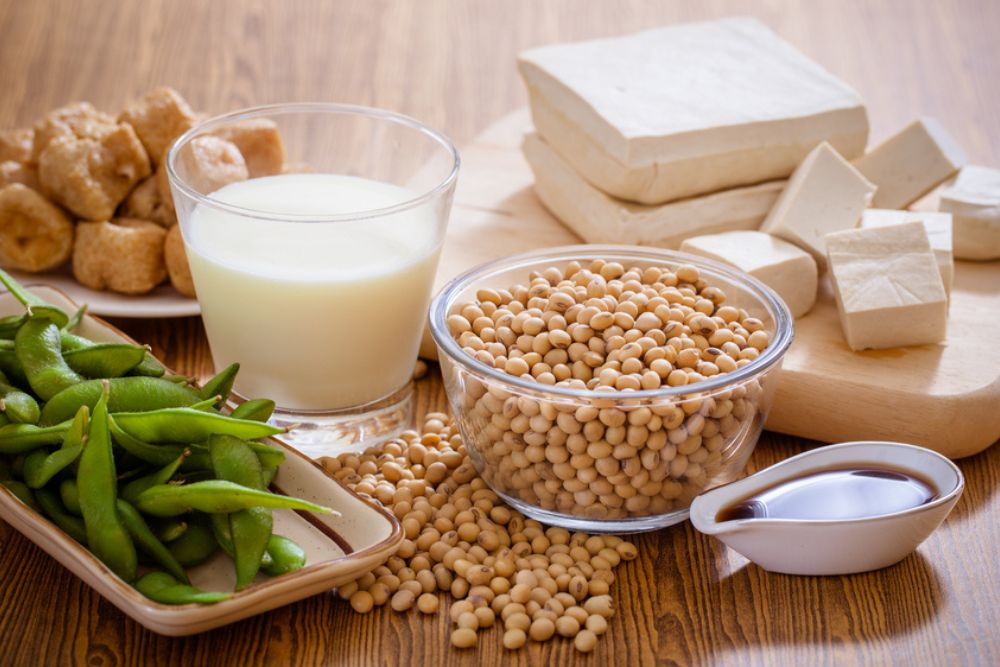
Soy products, including soy milk, tofu, and edamame, can interfere with the absorption of thyroid medications, making it harder to manage thyroid conditions effectively.
- Why It’s Dangerous: Soy contains compounds that can bind to thyroid medication in your digestive tract, reducing the amount your body absorbs.
- What to Do Instead: Wait at least four hours after taking your thyroid medication before consuming soy products. This helps ensure that your body has fully absorbed the medication.
10. Cranberry Juice and Blood Thinners
Cranberry juice is known for its health benefits, but if you’re on blood thinners like warfarin, it may not be the best choice for you.
- Why It’s Dangerous: Cranberry juice can enhance the blood-thinning effects of warfarin, increasing the risk of bleeding complications.
- What to Do Instead: Limit your cranberry juice intake and talk to your doctor about alternative beverages that won’t interfere with your medication.
Conclusion: Be Informed to Stay Safe
Understanding the interactions between common foods and medications is a simple yet essential step to maintaining your health. By being aware of these potential dangers, you can make informed choices that support the effectiveness of your treatments. Whether it’s something as simple as skipping grapefruit juice or avoiding a certain vegetable, these small adjustments can go a long way in protecting your well-being. Always consult your healthcare provider before making any changes to your diet or medication routine to ensure the safest and most effective approach to your health management.


